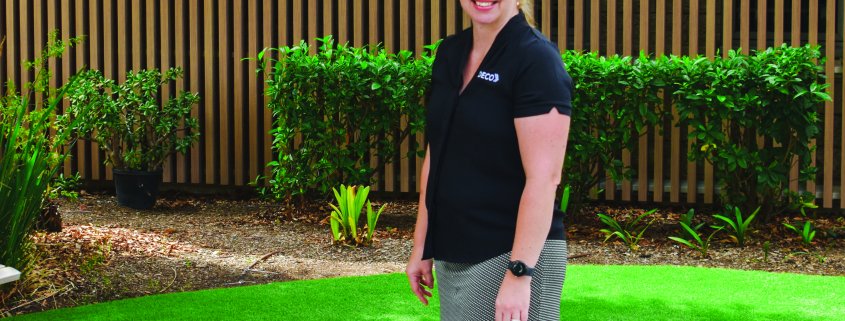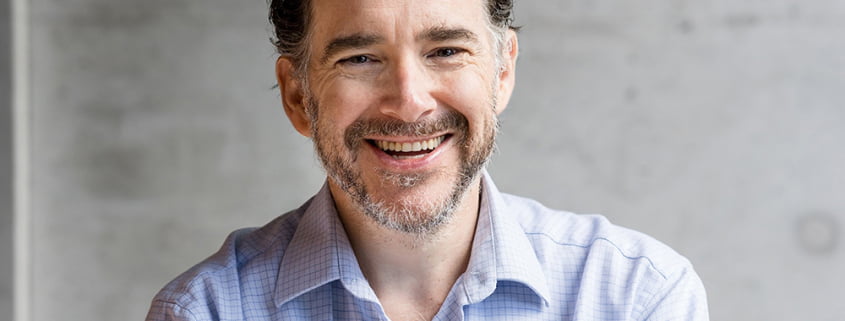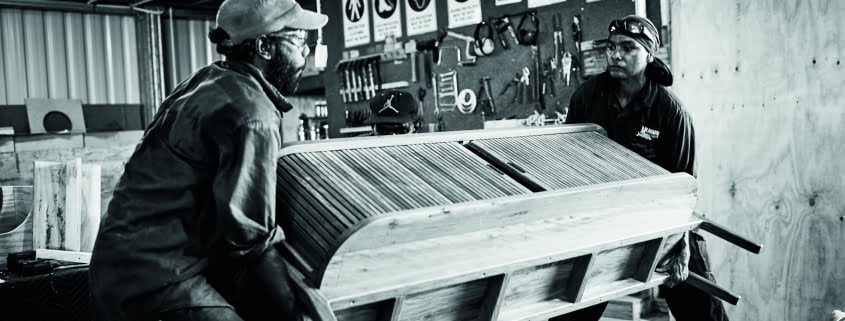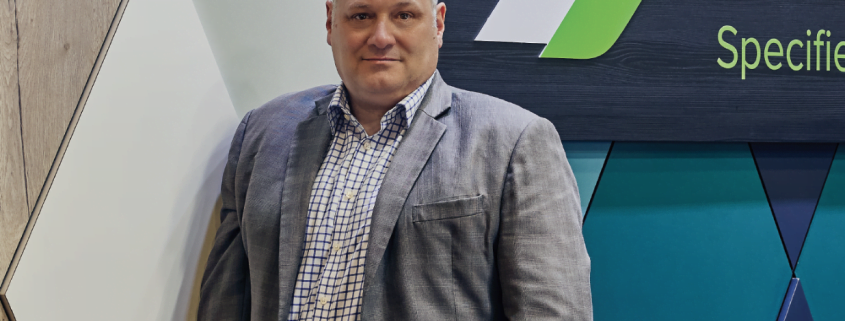In an era driven by digital transformation, industries worldwide are seeking innovative solutions to streamline their operations and enhance productivity. The construction services industry, often grappling with complexities, project management challenges, and the all-important ‘dollar’ following the Covid boom, is no exception.
Enter Nexvia, a cloud-based platform specifically tailored to meet the unique needs of businesses in the interior fitout and residential construction sector.
We caught up with chief product officer and co-founder of Nexvia, Cameron Blacker to explore how Nexvia is revolutionising the industry by providing a comprehensive suite of tools to optimise project management, collaboration, and efficiency.
For Cameron Blacker, it all started with supporting shopfitters in his 20s.
“I was doing everything from tech support to software and website services – information technology (IT) back then was a very different space,” he begins.
Spearheading his own small business at just 23 and developing a “few apps”, it was when Cameron met his business partner and now-Nexvia co-founder Rob Rower that things started to take off.
At the time, Cameron was supporting and building software solutions for use in Rob’s construction business.
But in 2016, the product grew into what is now known as Nexvia – one centralised platform for interior fitout and construction companies to provide solutions for project management, estimating and tendering, customer management and reporting on financial performance.
“We were born out of the interior fitout space and have since grown into mid-tier residential and speciality contractors,” Cameron says.
One of the core features of Nexvia is its robust project management capabilities.
With the platform’s intuitive interface, construction companies can seamlessly oversee every aspect of a project, from initial planning to completion.
Nexvia gives project managers the tools to track, tasks, variations, defects and live budgets, making it easy to spot cost issues as and when they occur, enabling managers to deal with them before they have the chance to affect project profitability.
“A big thing happened when Covid hit,” Cameron remembers.
“When businesses had to shut down their people, our customers – who already had our platform – were able to work from home on day one.
“While half of the IT community was scrambling to get remote servers going, our Nexvia customers were already online and could work from home and it basically helped their businesses.”
Solving problems: Visibility at every stage
With many contractors relying heavily on Excel spreadsheets, Cameron saw a problem to be solved.
“A lot of people will buy a piece of software in the hope it makes life better – a silver bullet – but it’s just not true,” he explains.
“You have to get in there and ask the business what and how they are doing things – do they make purchase orders for example?
“A lot of people start businesses and they are really good at what they do, then they get a few employees and need processes.
“Often they run into the same problem every business owner falls into – they don’t know where their budgets are at, where their money is at. We try and give them a tool where their project managers and estimators can plug their numbers in and the owners can see what is going on.”
Recognising the dynamic nature of construction projects, Nexvia extends its functionalities beyond the office walls. The platform’s mobile app empowers field workers to access project data, submit reports, and capture site progress directly from their smartphones or tablets.
“When you have hundreds of jobs going on at once, it’s a lot of money and a lot of risk, so we wanted to build a budget-checking culture so project managers aren’t just about the build – they are about safety, project scheduling, the money, and delivering quality on time.
“Construction has its complexities and niches, but when you do find something that is built for the industry to solve your problems – that’s what you want to get onboard for.”
The future: solution-oriented processes
Cameron says there will always be problems to solve and his leadership style is heading up a team that doesn’t shut down ideas.
“A big thing we would hear from clients would be ‘we just lost money on variations – we were making variations, but we weren’t invoicing them’, so we built a variations module.
“Then there was time tracking – it was taking too long to build timesheets and do payroll, so we built a process to do that.
“Then there was a need to communicate with clients and engage with them, so we built client reporting.
“All we kept doing was getting a new problem and finding a new solution.”
Cameron admits there will never be a time where development stops at Nexvia, and a big focus right now for the team is developing innovative tools to ensure safety on job sites and tapping into a shifting market of businesses showing their costings to build transparency and trust with clients.
He is also looking at how Nexvia connects with other third-party systems, and how artificial intelligence (AI) can be used to create efficiencies within the industry.
“We are focusing on how we get more data to customers, and how we integrate with third-party software systems,” he says.
“I do a lot of research on AI and automation to figure out how AI right now can help within our industry.
“There is a research team in Brisbane who are looking at how AI can predict if a construction job is at risk. They have worked out an algorithm and are running this on tier 1 and tier 2 sites.
“Then there is optical character recognition (OCR) programs for scanning bills and invoicing – that space is evolving and manual data entry is disappearing.
“Who knows what new technology is just around the corner, but it’s about working out what is noise and what is of value to our customers.
“It’s an interesting landscape and we keep watching it, keep supplying tools and upgrading.”
Business learnings after two decades in the industry
Growing up in Logan, south of Brisbane, Cameron was fortunate that his parents invested in his education.
“Not being well off” and his father having health issues, this was by no means a small thing. Their narrative laid the foundational cornerstone for Cameron’s determination and passion that led him to start his own business at such an early age.
It’s a time Cameron looks back on with mixed feelings.
“When you are young, you don’t know any better. I didn’t know what I was doing and I look back now and think ‘would I make that decision?’.
“Over time, I learned a lot of lessons.
“If you listen to the stories of successful entrepreneurs, they always say there is a lot of hard work, a little bit of luck, and perseverance.
“I love the technical side of software, I love process, but you have to step outside of your comfort zone – and it’s the same for builders or construction – you have to step into the business side, you have to network and find mentors to learn from.”
Cameron says listening to other people, building a good culture, having a great team and employing those who are smarter than you is also his top tip “because they need to know the stuff you don’t know”.
While Nexvia’s powerful platform is addressing clients’ unique challenges head-on, the future is looking even brighter.
As the industry continues to embrace digital transformation, Nexvia stands as a powerful tool for businesses seeking to stay ahead of the curve and achieve success in an increasingly competitive landscape.








